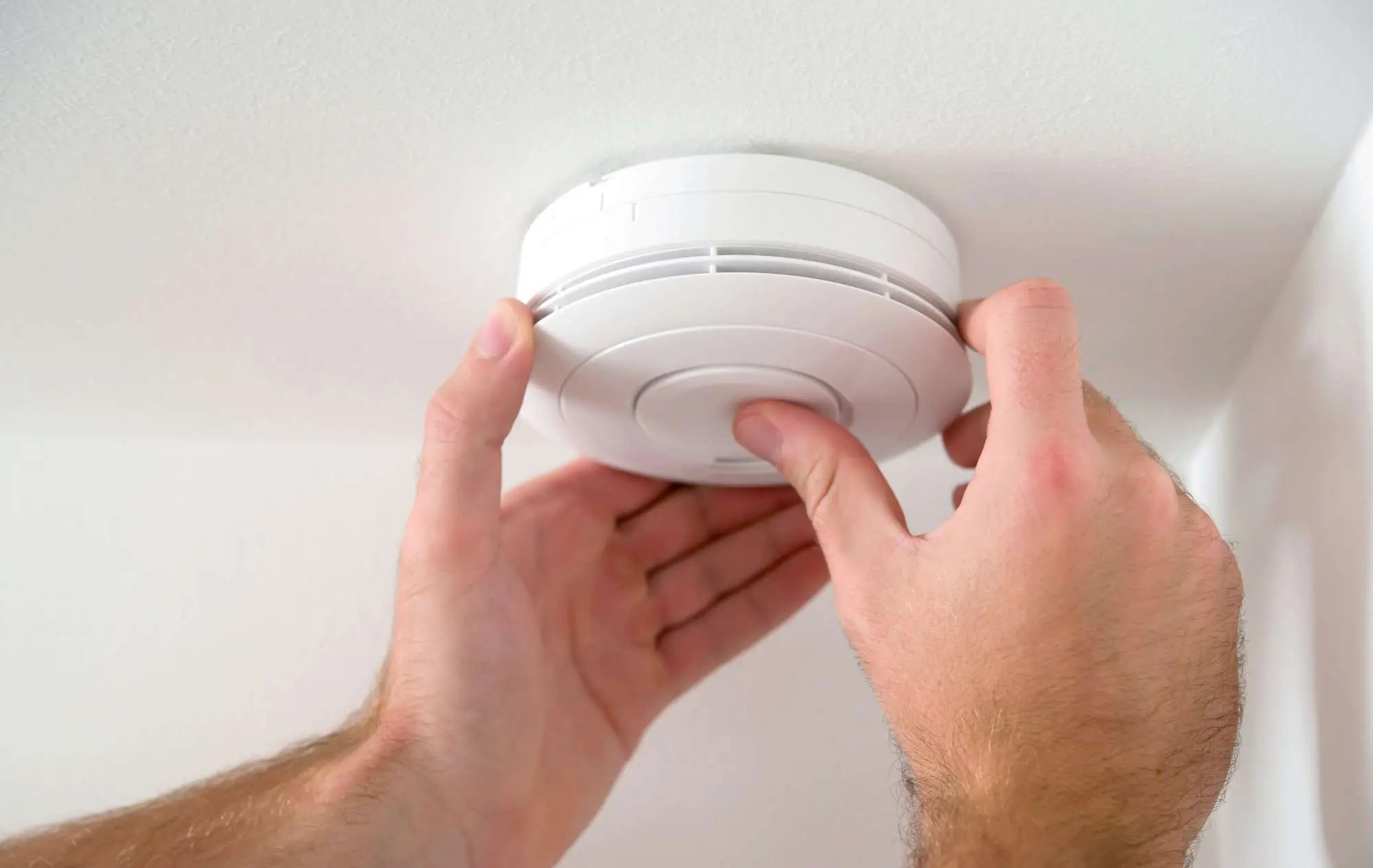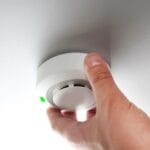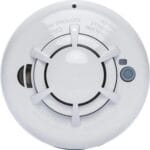That annoying chirp from your wired smoke alarm? It’s trying to tell you something. This guide helps you decode those beeps and silence them, from simple fixes to more involved solutions. Let’s get your alarm quiet and your home safe.
Decoding the Beep: What’s Your Alarm Saying?
Your smoke alarm communicates through beeps. A single chirp every minute or so likely suggests a low battery, even in hardwired models. A continuous beep or rapid chirps could mean smoke or a malfunction. Understanding these signals is the first step to troubleshooting. [https://www.lolaapp.com/267084131]
Understanding Beep Patterns
- Single Chirp Every 30-60 Seconds: This typically indicates a low backup battery. Yes, even hard-wired alarms have backup batteries to function during power outages.
- Continuous Beep or Rapid Chirps: This suggests a more serious issue, such as smoke, a malfunctioning sensor, or a problem with the wiring.
- Intermittent Chirping: This can be caused by dust buildup, loose wiring, or other environmental factors.
Silence the Chirp: Easy DIY Fixes
Before calling a professional, try these simple DIY fixes. Remember to always prioritize safety and turn off the power at the breaker box before handling any wiring.
1. Reset the Alarm
Locate the reset button (usually marked “test”) and press and hold it for 15-20 seconds. This often clears minor glitches.
2. Power Cycle the Detector
Turn off the power to the smoke detector at the breaker box for a minute, then turn it back on. This can resolve temporary electrical issues.
3. Dust Be Gone
Dust accumulation can trigger false alarms. With the power off, use a vacuum cleaner’s soft brush attachment or compressed air to gently remove dust from the detector’s vents and sensor area.
Beyond the Battery: Deeper Troubleshooting
If the beeping persists, the issue might be more complex.
4. Check the Wiring
Loose or faulty wiring can cause intermittent chirping. Caution: Turn off the power at the breaker box before handling any wiring! Carefully inspect the wiring connected to the detector. Tighten any loose connections or, if you’re not comfortable with electrical work, call a qualified electrician.
5. Inspect the Backup Battery
Even hard-wired alarms have backup batteries. Some have sealed, 10-year batteries, while others use standard 9V batteries. If your alarm uses a replaceable battery, try replacing it, ensuring correct polarity. If the alarm has a sealed battery and it’s beeping, the entire unit likely needs replacement.
6. Consider the Alarm’s Age
Smoke detectors have a lifespan of about 10 years. If yours is older, it’s probably time for a new one, regardless of whether it’s beeping.
Interconnected Alarms: Finding the Culprit
Interconnected alarms sound together, making it tricky to find the source of a problem. Look for a rapidly flashing light on each unit. The one flashing fastest is usually the one triggering the others. Troubleshooting that unit often solves the problem for all interconnected alarms. [https://www.lolaapp.com/4×4-oll-parity]
Upgrading Your Alarms: Exploring Smart Technology
Consider upgrading to smart smoke detectors. These offer features like smartphone notifications, interconnected alarms, and voice alerts. Research suggests they improve fire safety and response times.
Regular Maintenance: A Quiet and Safe Home
Preventing beeping starts with regular maintenance:
- Test Monthly: Press the test button to ensure proper function.
- Clean Every Six Months: Remove dust and debris.
- Replace Every 10 Years: Even without beeping, old detectors are less reliable.
When to Call a Pro
If the beeping continues after troubleshooting, or if you suspect wiring issues, call a qualified electrician. They can safely diagnose and resolve any electrical problems.
Prevent Future Beeping: Simple Steps, Big Impact
- Consistent Cleaning: Regularly dusting your detectors can prevent dust-related false alarms.
- Battery Vigilance: Replacing backup batteries annually or as needed keeps your alarms powered up and chirp-free.
- Embrace Technology: Explore smart smoke detectors with advanced features like remote monitoring and interconnected alarms.
This comprehensive guide equips you to handle most smoke alarm beeping issues. Remember, a functioning smoke alarm is essential for home safety. By understanding its signals and performing regular maintenance, you can ensure your home is protected.
- Understanding GVAA Rates: A Practical Guide for Voice Actors and Clients - December 25, 2024
- Resuming Intimacy After Endometrial Ablation: A Guide to Healing and Reconnection - December 25, 2024
- Homunculus Servant 5e: The Ultimate Artificer’s Guide (Stats, Strategies, and Secrets) - December 25, 2024















